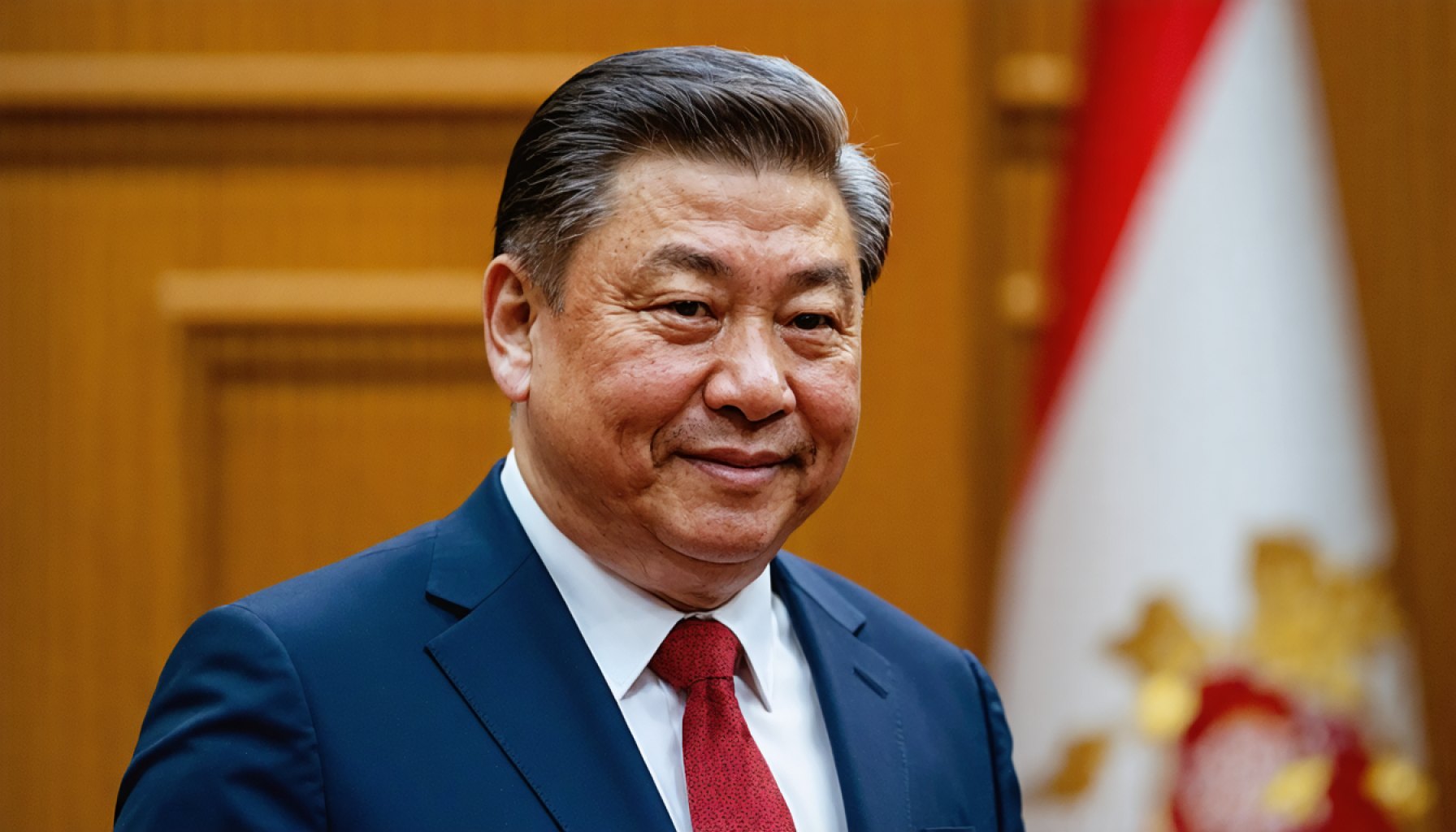- Jiang Chaoliang faces intense scrutiny amid China’s surge in political accountability efforts.
- Accusations of violating party discipline bring Jiang’s career into a new spotlight.
- Jiang held influential roles, including Governor of Jilin Province and Secretary of the Hubei Provincial Committee.
- The Central Commission for Discipline Inspection and the National Supervisory Commission lead the investigation.
- The case highlights China’s zero-tolerance approach to corruption and misconduct.
- Leadership in China emphasizes the importance of ethical governance, transparency, and integrity.
- The investigation reflects broader commitments to accountability within China’s political system.
- This development provides insight into the mechanisms supporting trust in governance.
Amidst a surge of political accountability in China, Jiang Chaoliang, a leading figure in China’s political landscape, finds himself under intense scrutiny. The vibrancy of Beijing’s political corridors dims as Jiang, a seasoned statesman born in August 1957, faces grave accusations of violating party discipline.
The backdrop of Jiang’s illustrious career makes this development particularly arresting. Having held significant posts such as the Governorship of Jilin Province and the esteemed position of Secretary of the Hubei Provincial Committee, Jiang wielded considerable influence over both local and national policies. Yet, the Central Commission for Discipline Inspection and the National Supervisory Commission—the vigilant watchdogs of China’s ruling party—have now thrust him into the spotlight, signaling a zero-tolerance approach to corruption and misconduct.
As Jiang undergoes rigorous disciplinary review and supervisory investigation, China’s leadership sends a resounding message: even a prestigious title and years of public service do not eclipse the imperative of ethical governance. The unfolding story underscores a pivotal theme resonating throughout China’s political fabric—ensuring transparency and integrity remain unyielding pillars of leadership.
For observers within and outside the country, this case offers a compelling glimpse into the mechanisms safeguarding accountability in one of the world’s largest political bodies. In a rapidly evolving global environment, the resolve to uphold these standards shapes not only policy but trust in governance itself.
Unveiling China’s Political Accountability: The Case of Jiang Chaoliang
How-To Steps & Life Hacks: Navigating Political Dynamics in China
Understanding China’s political landscape requires grasping the dynamics of its internal mechanisms:
1. Awareness of Party Structures: Familiarize yourself with the Chinese Communist Party’s (CCP) structure, including key bodies like the Central Commission for Discipline Inspection (CCDI).
2. Key Figures & Positions: Identify influential leaders and their roles within the party framework to comprehend shifts in power and influence.
3. Historical Context: Recognize historical precedents of accountability and anti-corruption campaigns, which might indicate current and future administrative moves.
4. Stay Informed: Regularly consult reliable sources like Reuters and BBC for updates and analyses.
Real-World Use Cases: Impacts of Political Accountability
– Policy Influences: Cases like Jiang Chaoliang’s impact policy-making by reinforcing stricter governance and ethical standards.
– Public Service Trust: Such high-profile investigations aim to restore public and international trust in China’s governance.
Market Forecasts & Industry Trends
The political stability in China has direct implications on global markets:
– Economic Stability: Robust anti-corruption campaigns can lead to greater economic certainty, boosting both foreign and domestic investment.
– Industry Impact: Sectors like finance and technology may see shifts in regulations and strategies aligning with transparency goals.
Controversies & Limitations
– Scope of Investigations: While aiming for transparency, political probes can be criticized for being selectively applied due to internal political rivalries.
– Impact on Governance: Prolonged scrutiny may destabilize local governance structures, affecting policy implementation.
Security & Sustainability Insights
– Data Security: Increased accountability includes enhancing cybersecurity measures to protect data integrity within governmental departments.
– Sustainability Efforts: Transparent governance may boost environmental and economic sustainability initiatives by instilling public confidence in regulatory bodies.
Tutorials & Compatibility
Understanding compatibility with global governance standards involves:
– Comparative Analysis: Study other countries’ transparency metrics to gauge China’s progress and areas for improvement.
– Implementation Practices: Analyze China’s integration of international practices in governance and accountability.
Pros & Cons Overview
Pros:
– Enhanced Trust: Reinforces confidence among the populace and international partners.
– Policy Optimization: Leads to more effective and transparent policymaking.
Cons:
– Potential Disruptions: Prolonged investigations can hamper routine governmental operations.
Actionable Recommendations
– Stay Updated: Keep abreast of political developments through reputable outlets.
– Analytical Skills: Develop a keen analytical understanding of international political trends and their implications.
– Engage with Experts: Participate in forums and discussions led by policy analysts to enhance your understanding.
The unfolding narrative of Jiang Chaoliang and China’s political accountability initiatives reflect the intricate dance between governance and ethics, crucial for fostering a stable political environment.
